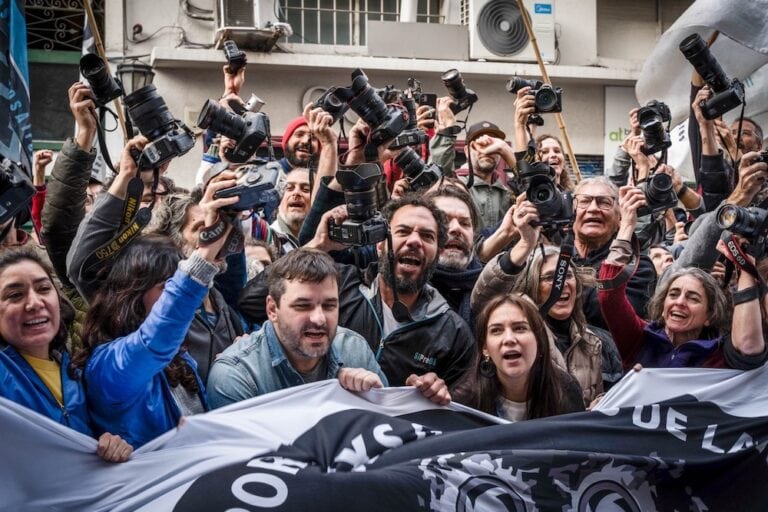(PERIODISTAS/IFEX) – In the usual zigzag fashion exhibited by the Argentinean justice system over the past few years with regards to freedom of expression, the 28 March 2001 indictment of journalist Marcelo Bonelli by Federal Judge Claudio Bonadio followed a course contrary to the principles enshrined in the constitution and international treaties. The judge presiding […]
(PERIODISTAS/IFEX) – In the usual zigzag fashion exhibited by the Argentinean justice system over the past few years with regards to freedom of expression, the 28 March 2001 indictment of journalist Marcelo Bonelli by Federal Judge Claudio Bonadio followed a course contrary to the principles enshrined in the constitution and international treaties.
The judge presiding over the Criminal and Correctional Federal Court No. 11 indicted Bonelli on charges of violating privacy of financial information. The charge is connected to an article published on 5 June 2000 on the assets of former civil servant Víctor Alderete, who is currently imprisoned. In the article, the journalist reported on tax evasion uncovered by the General Tax Office (Direccion General Impositiva, DGI), while investigating approximately twenty legal cases against the former head of the Integrated Medical Assistance Programme (Plan de Asistencia Médica Integral, PAMI), a health programme for retirees and pensioners.
The verdict can be contested on the basis of three different arguments. Firstly, the journalist was held accountable for something that did not pertain to him. The pertinent legislation (Article 101, Law 11.683) prohibits only those responsible for this information from divulging it, in this case the DGI employees.
Secondly, the journalist is being punished for carrying out his profession as a journalist, that is to say, disseminating all matters of public interest, always reporting truthfully and acting in good faith in cases where there may be some error. It is precisely Bonadio’s verdict which acknowledges the truthfulness of Bonelli’s information.
Lastly, the so-called “conflict of rights” between protecting freedom of expression and safeguarding privacy contravenes the principles enshrined in international treaties – such as in the doctrine of “real malice”, which stipulates that the right to inform or be informed prevails when matters of public interest are involved. In this case, Alderete – former head of PAMI and responsible for one of the largest public administration budgets – was being investigated for alleged embezzlement of public funds.
“Press freedom should not always take precedence as it is not limitless,” argued the judge, incriminating Bonelli in charges that carry a sentence of one month to two years in prison. PERIODISTAS warned that, “this verdict sends a message to all journalists: it threatens all those who report on civil servants who are alleged to have appropriated public funds with jail sentences.”
The verdict will be analysed next week by the Federal Appeals Court, which will decide if the ruling will be upheld. PERIODISTAS is confident that the indictment “will be overturned by the Federal Appeals Court” and emphasised that “this latest foolish act by a member of the Argentinean justice system revives the urgent need to modify the civil and criminal codes so that they are more in line with the constitution and international treaties ratified by Argentina.”
In 1999, as a result of the amicable solution agreed upon by PERIODISTAS and the Argentinean state before the Interamerican Commission on Human Rights, a bill was presented to the Senate. At that time the bill received the endorsement of all members of the two majority blocs of the upper house of the legislature, of former President Menem and current President Fernando De la Rúa. Since then, however, the process has been stalled (see IFEX alerts 14 December, 13 October, 13 September and 7 May 1999, 9 November 1998).


